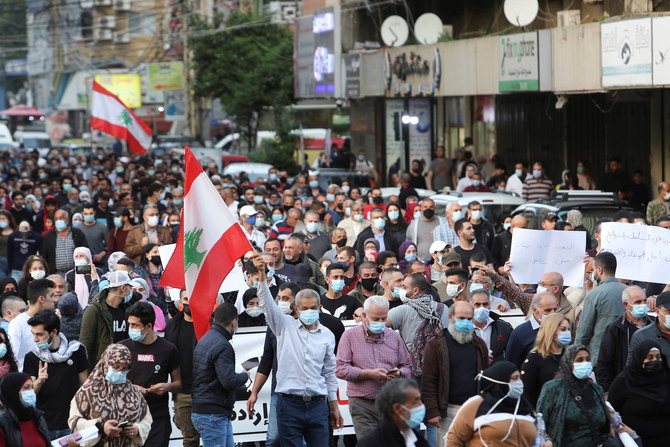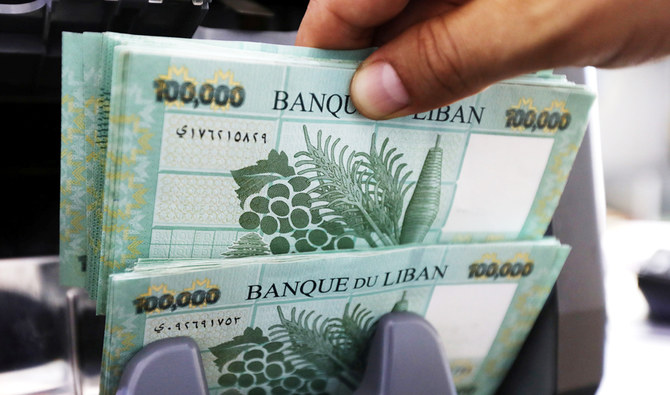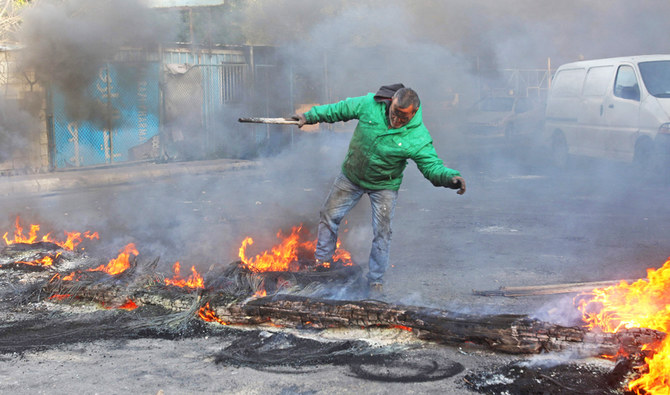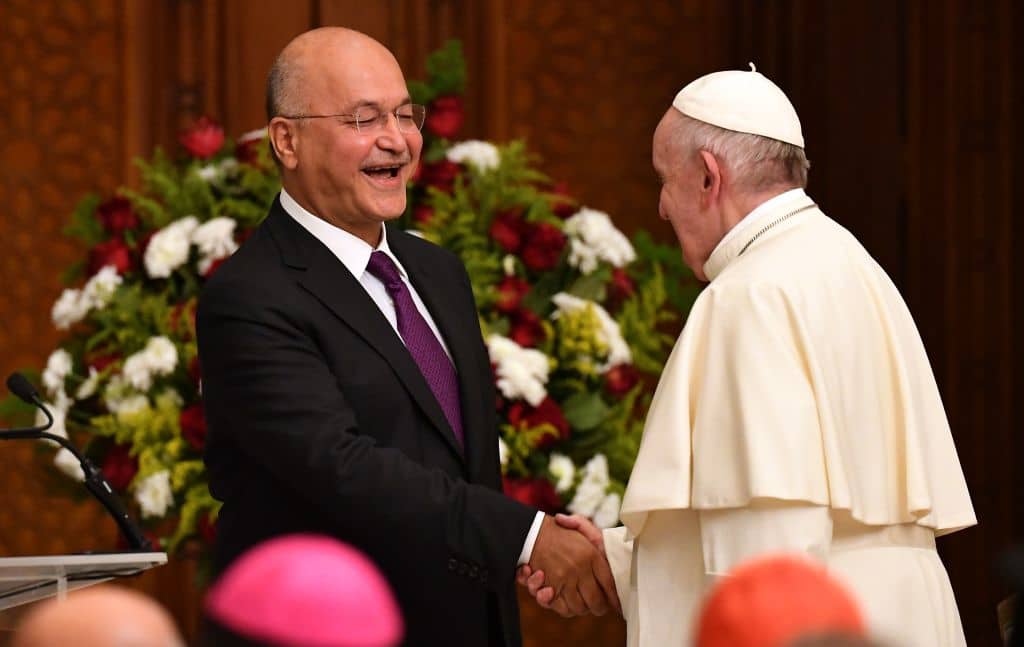
by arabnews.com — NAJIA HOUSSARI —BEIRUT: Lebanese troops on Wednesday reopened scores of roads closed by protesters across the country in the six past days amid anger at government inaction over the deteriorating economy. Road closures slowed the national vaccination plan, stopped trucks transporting oxygen to hospitals across Lebanon, and resulted in the two deaths of two men when their car hit a truck blocking a highway. Troops and security forces stepped in on Wednesday to prevent protesters in Hay Al-Sellom, a densely populated neighborhood in the south Beirut Dahye suburbs, from blocking roads with burning tires. The army said that “as a result of the tragic accidents and violations that took place and in order to preserve the safety of citizens, army units this morning began to open closed roads.”
On Monday night, a car struck a truck blocking a highway north of Lebanon, killing both occupants instantly. Protests also slowed the national vaccination rollout, which is still in its first phase, targeting the elderly and medical staff. Fewer than 4,500 people had received the first dose of the vaccine on Tuesday, according to the health ministry, as access to vaccination centers was blocked. Sharaf Abou Sharaf, head of the doctors’ syndicate, warned of “a rise in COVID-19 cases in the coming days since precautionary measures are not being fully followed.” Access of oxygen supplies to hospitals, filled with coronavirus patients, was also hit by the protests. Firas Abiad, director of the Rafik Hariri University Hospital in Beirut, complained about an alarming decrease in oxygen reserves due to the closed roads. “Without oxygen, we will be losing lives,” he said. Abiad also predicted a rise in the number of cases, saying: “Tough times are ahead.”











